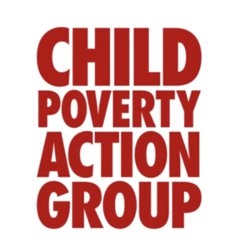
Child Poverty Action Group (CPAG) advises that the new Oranga Tamariki (Ministry for Vulnerable Children) officially replacing Child, Youth and Family as of today, should have a much wider vision and extend its focus to all children in need. It is crucial that it ensures resources are plentiful.
According to Associate Professor Mike O’Brien, CPAG social security spokesperson, “This ministry has to take a wide, comprehensive, holistic approach to the needs of all children – a narrow focus will not always provide better protection for children,”
Such a restricted focus, and resourcing based only on numbers meeting the social investment risk criteria, could result in many children failing to receive essential support. In particular, children who suffer deprivation as a result of income poverty. These children must be given prime consideration.
Professor O’Brien says that early intervention is only one part of the solution, and will not work without attending to core issues of poverty – including a lack of affordable, reliable and secure housing.
“All children are vulnerable, not just some who meet the specific risk criteria.”
Earlier this year CPAG submitted on the incoming legislation, that the new ministry must rethink its policies, focusing on the link between poverty and poor outcomes for families, and committing to provide significant financial resources to end poverty in Aotearoa New Zealand.
The submission states, “This would result in massive cost-savings in the long term, as children would be mentally and physically healthier and would not represent lifelong costs to the health system due to preventable illnesses. Healthy children will grow into adults who are better able to work, which would mean savings on benefit costs. There would also be cost savings to the criminal justice system.
“Shifting vital care and protection work into the NGO sector will not improve the situation for children who need care and protection. Oranga Tamariki will not be effective unless it is adequately resourced at all levels across both government and NGO sectors, including provision of and support for social workers.
“If the Government does not make sufficient resources available for training and supporting those working to protect children, legislative changes will not result in practical improvements.”
CPAG said that the removal of the “whānau first” clause was a mistake.
“The current legislation needs to be amended to ensure that children’s needs and wellbeing is carefully linked with their whānau,” says O’Brien.
“Children cannot be picked up and moved around like shopping parcels. Links to family are critical for their well-being, and as such families need to be well-supported to enable them to care for children.”





I’m presently in my final year of the Bachelor of Applied Social work and what has been highlighted throughout this degree is the importance of “holistic” practice. The importance and inclusion of whanau along with the impact of legislation has been a constant within our program so to have legislation that supports “holistic” practice is vital. Regulations are a ‘must do’ so no matter how considered codes and ethics of practice are, organisations and practitioners are constricted in their practice thereby restricting what could be best practice. I question the synergy between the policy makers and those who are guided by the policies they subscribe. For mine, it needs to align to effect best practice.
Did you get fries with that?
Comments are closed.